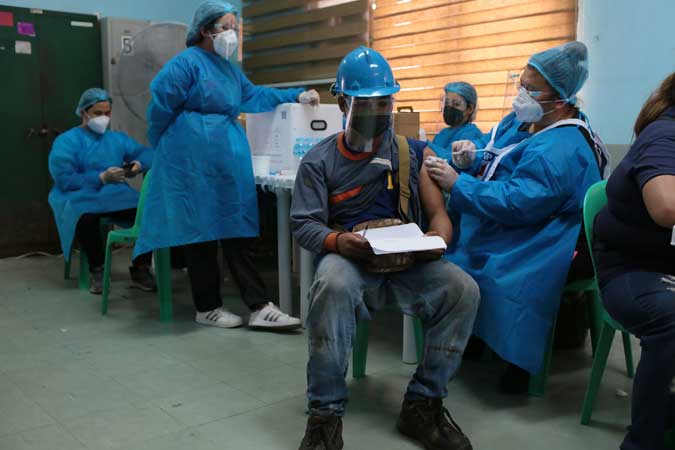
Medicine Cabinet
By Teodoro B. Padilla

The National Government, local government units (LGUs), and private sector are joining forces to ensure that all 35.5 million individuals belonging to the A4 priority group or economic frontliners receive their first dose of the coronavirus disease 2019 (COVID-19) vaccine by September 2021.
This month, AstraZeneca will deliver 1,170,000 doses purchased by local companies while the government expects the delivery of 4.5 million Sinovac doses, 1 million Moderna doses, and another 1 million doses of Sputnik V of Gamaleya. Starting August 2021, the government expects 15 to 25 million doses from various vaccine manufacturers to arrive monthly.
These doses include both the government- and private sector-procured doses as well as those coming from the COVAX facility, according to chief implementer of the National Task Force (NTF) against COVID-19 Secretary Carlito G. Galvez, Jr.
PHAPCares Foundation, the corporate social responsibility arm of the Pharmaceutical and Healthcare Association of the Philippines (PHAP), recently co-organized a forum to highlight the importance of vaccination to individual health and the country’s economy.
“It is our hope that more people will be vaccinated because vaccination is one of the ways by which we could protect ourselves and restart our economy,” said Yee Kok Cheong, PHAPCares Foundation president.
A day before the official June 7 launch of vaccination for frontliners, the total number of COVID-19 vaccine doses administered in the country was 16,818. By June 20, more than half a million (534,982) doses had been administered, which translates to 38,213 jabs per day for the two-week period.
“The substantial increase in vaccine doses administered per day is an indication that more Filipino workers are now willing to be inoculated in order to help our country’s economic recovery,” Mr. Galvez noted.
One of the key strategies that the NTF asked from the Inter-Agency Task Force for the Management of Emerging Infectious Diseases (IATF) was the simplification and expansion of the A4 priority group to include all workers in the government, private, and informal sectors, including those employed in private households.
“We believe that it is both logical and practical to inoculate all individuals who go out of their homes to work. Our economic frontliners are our modern-day heroes who play a key role during this pandemic. They risk their lives daily so that they can continue to provide essential services to their countrymen. They are the people who drive our economy, regardless of the industry they belong to. All of them are vulnerable to COVID-19, and they all need to be inoculated,” Mr. Galvez said.
With the government and the private sector pooling resources in the procurement of COVID-19 vaccines and decentralizing the implementation of vaccine administration, the government expressed confidence in achieving the goal of administering the first dose of the COVID-19 vaccine to all 35.5 million economic frontliners in the country by September.
“All private sector-procured vaccine doses will be turned over to the companies and organizations that purchased these. We are giving them the flexibility to administer the vaccines not just for their employees but for their dependents as well,” Mr. Galvez said.
The more people get vaccinated, the greater chance of protecting our communities from the emergence of variants. As PHAPCares Foundation Executive Director Dr. Rosarita Siasoco concluded during the forum, vaccination also helps reduce COVID-related hospitalizations and deaths, eases the burden on our health systems, and “allows individuals, families, communities and businesses to get back to normal.”
Teodoro B. Padilla is the executive director of the Pharmaceutical and Healthcare Association of the Philippines (PHAP). PHAP represents the biopharmaceutical medicines and vaccines industry in the country. Its Members are in the forefront of research and development efforts for COVID-19 and other diseases that affect Filipinos.